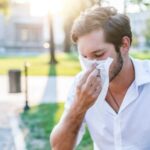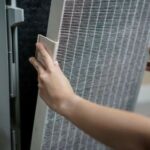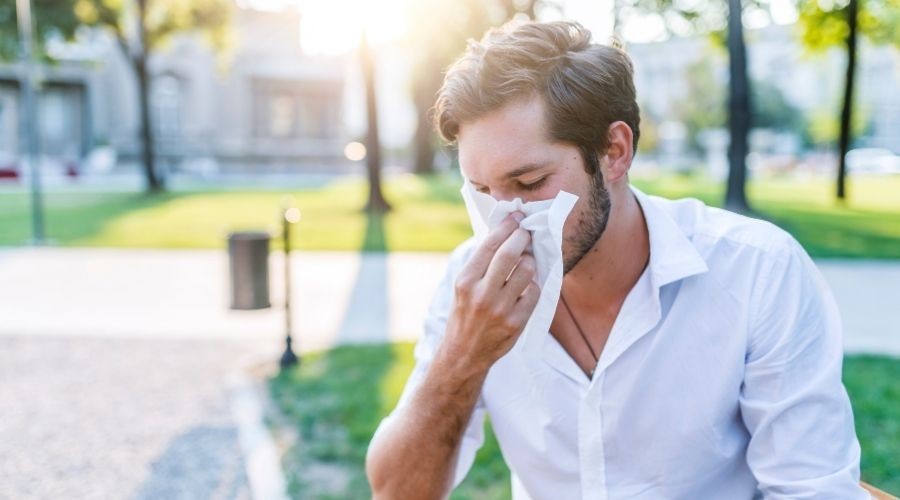
How To Find the Right HVAC Filter for Keeping Allergies At Bay
Spring has sprung, and that means allergy season is in full swing. Flowers, bushes, trees, and weeds are all blossoming like crazy and releasing their pollen into the world with abandon. Then along come the breezy days to kick it all up, along with dirt, dust, and all manner of particulate matter. For anyone who’s especially sensitive, it can be nearly impossible to find relief. Even for those with fairly mild reactions, spring allergies can be a serious drag.
Fortunately, installing the right air filter can help bring airborne allergens to a minimum - at least inside the home. So which filter is the right one? Keep reading for a look at a few different filter types and how they compare in the fight against allergies.
Fiberglass Mesh Filters
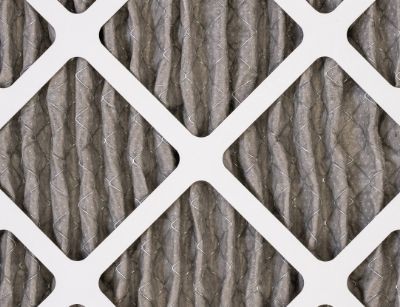
Fiberglass filters are highly popular because they are very inexpensive and easy to find in just about any hardware store or supermarket. These use several layers of spun fiberglass mesh to capture airborne pollutants. However, these mesh layers are full of small gaps and pores to allow for better airflow, which means that many smaller pollutants will go right through the filter and be recirculated through the home.
For this reason, fiberglass filters aren’t very high on the MERV rating scale, which basically measures a filter’s efficacy at capturing particles within a certain size range. Fiberglass filters typically aren’t rated above a 4 (out of 20), which means they can capture larger debris like hair, dirt, and carpet fibers, but little else. These are better for homeowners who are not affected much by allergies.
Washable Electrostatic Filters
Reusable electrostatic air filters are another popular type of filter, mainly because they don’t need to be replaced and last nearly as long as the HVAC system itself. Instead, they can be removed, washed off with water, and put back in place once they’re dry. These use static electricity to give particles a positive charge, which causes them to become attracted to and trapped in the negatively charged filter media, which is typically a woven mesh of polypropylene.
Unfortunately, these also don’t have a MERV rating higher than 4. They can capture some types of pollen, textile fibers, and insect detritus but won’t stop smaller particles like mold, dust mites, or pet dander.
Pleated and HEPA AC Filters
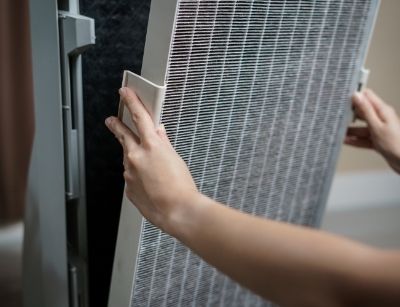 Pleated filters made from cotton or polyester are another popular option. These are more expensive than fiberglass filters and need to be replaced every 2-3 months, but most have a MERV rating between 5 and 13.
Pleated filters made from cotton or polyester are another popular option. These are more expensive than fiberglass filters and need to be replaced every 2-3 months, but most have a MERV rating between 5 and 13.The most effective filters by far are HEPA (high-efficiency particulate air) filters. These have a MERV rating of 16-20, which is beyond the standard range. They can capture even very tiny pollutants, including viruses, bacteria, spores, pesticides, volatile organic compounds, and smoke. Their density does make it difficult for air to pass through, so if the HVAC system is not powerful enough to handle a HEPA filter, the unit can lose efficiency and become worn or damaged. This is why they’re mainly used in commercial settings like hospitals.
A HEPA filter would obviously be ideal for those with severe allergies, but most residential HVAC systems are not designed to handle them. And a pleated filter with a high MERV rating may just be enough for some people. Before purchasing a filter, it’s always best to consult with an HVAC professional to determine what the home’s unit is capable of.
About Honest Abe’s Home Services
Honest Abe’s Home Services has been providing plumbing, HVAC, and air quality services in Osage Beach, Missouri, for years. As an award-winning and highly-rated company, they are dedicated to providing outstanding service, fast turnarounds, and solutions to fit any budget. They also offer 24/7 emergency service and a complete satisfaction guarantee on all work.
Distribution Links +
- lifestyle.us983.com
- metro.newschannelnebraska.com
- midplains.newschannelnebraska.com
- lifestyle.countrylegends1059.com
- lifestyle.1045thedan.com
- www.wrde.com
- panhandle.newschannelnebraska.com
- www.wicz.com
- www.wboc.com
- www.snntv.com
- www.rfdtv.com
- www.htv10.tv
- central.newschannelnebraska.com
- southeast.newschannelnebraska.com
- northeast.newschannelnebraska.com
- plattevalley.newschannelnebraska.com
- rivercountry.newschannelnebraska.com
- www.wpgxfox28.com
- lifestyle.mykmlk.com
- www.wtnzfox43.com
- lifestyle.3wzfm.com
- lifestyle.bigtalkerradio.com
- lifestyle.rewindmymusic.com
- lifestyle.koltcountry.com
- lifestyle.967thewolf.net
- lifestyle.southernsportstoday.com
- lifestyle.thepodcastpark.com
- lifestyle.680thefan.com
- lifestyle.xtra1063.com
- lifestyle.953hlf.com
- lifestyle.rewind1019.com
- lifestyle.967wshv.com

